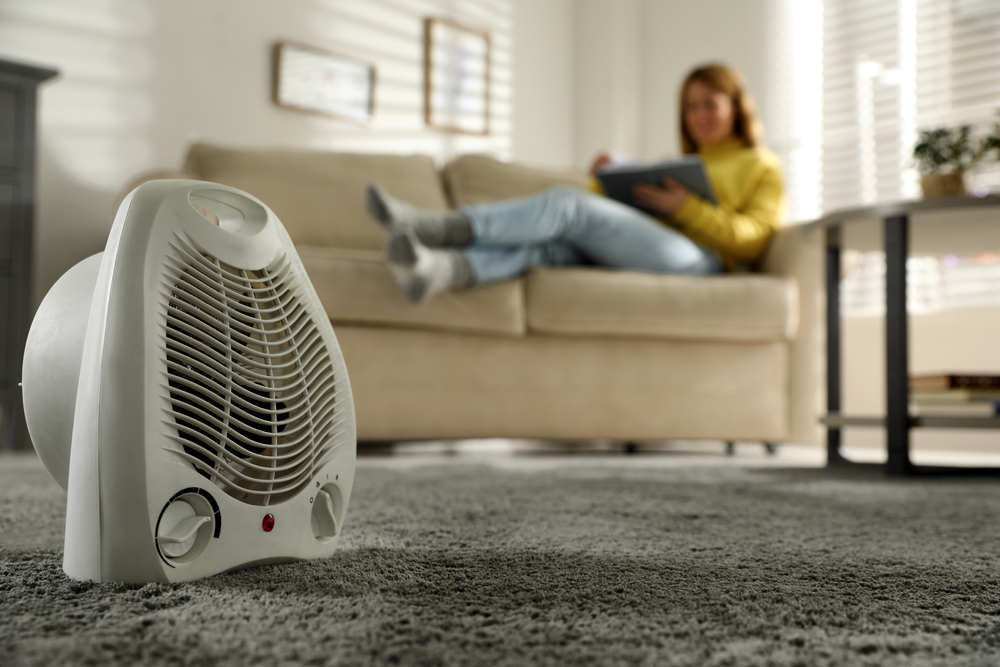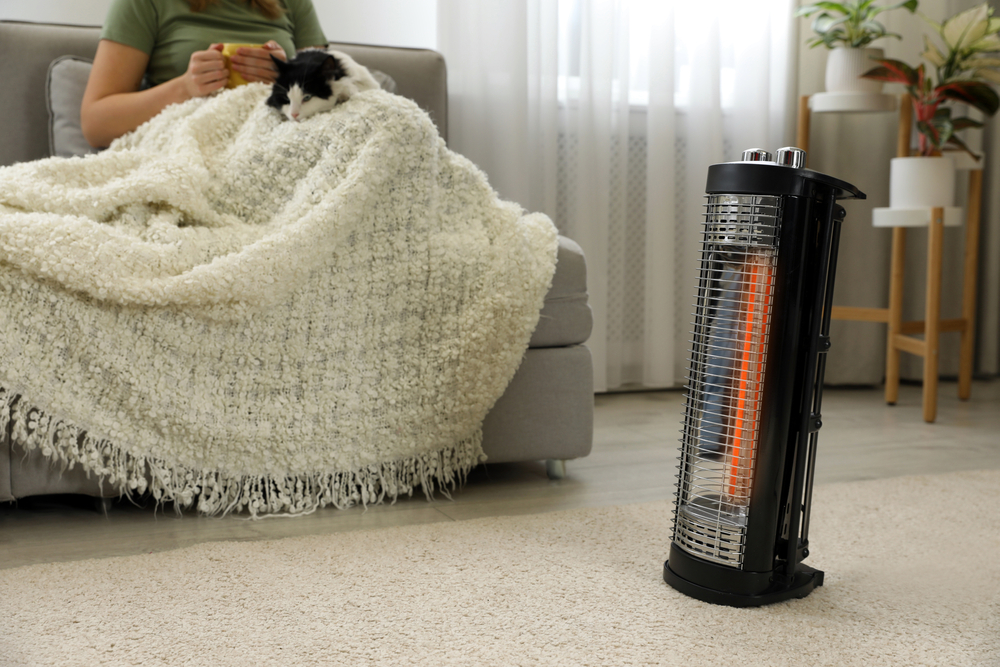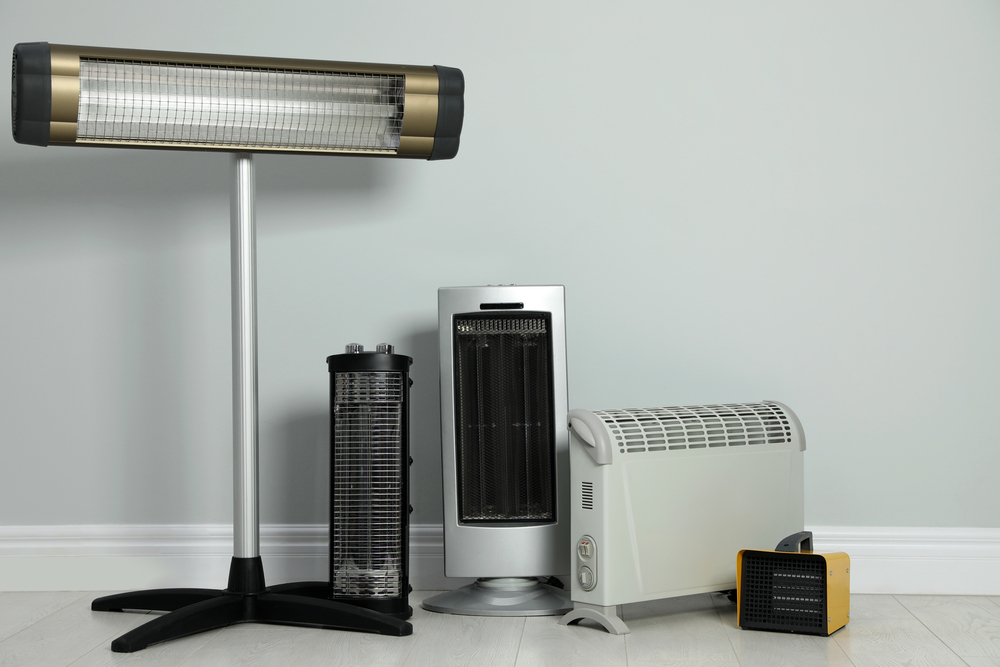
As temperatures begin to drop, many homeowners and business owners face a crucial decision: should they invest in a central heating system or rely on space heaters to keep their spaces warm and comfortable?
In this comprehensive guide, we will explore the pros and cons of space heaters and central heating systems, helping you make an informed decision on which is the best option for property. We will discuss cost considerations, effectiveness based on the size of your space and insulation, safety concerns, and answer some of the most frequently asked questions about home heating.
When we talk about the cost of a heating system, people are often focused only on the initial costs. However, thinking more long term, there are other costs or savings that become involved, including energy costs and maintenance.
The initial cost outlay for a central heating system can be quite high, especially if you need to install a new boiler, radiators, and ducts. However, once installed, a central heating system can last for many years with minimal maintenance.
On the other hand, radiant heaters are generally cheaper to purchase, but they may need to be replaced more frequently due to wear and tear.
Running costs for central heating systems can vary depending on the type of fuel used (gas or electricity), the efficiency of the boiler, and the size and insulation of your space.
Space heaters can be less expensive to run, especially if you only need to heat a small area or use them sporadically. If you rely on multiple space heaters to heat a large area, the costs can quickly add up, so for larger spaces they are not the most cost efficient option.
A well-maintained central heating system can last for many years, with regular servicing and occasional repairs to the boiler and radiators. The less you maintain your heater, the more likely expensive repairs will be required. Even worse, evidence shows poorly maintained heaters will need to be replaced sooner. Space heaters generally require less maintenance but may need to be replaced more frequently due to wear and tear or damage.
Central heating systems are designed to heat an entire building, making them an efficient choice for large homes or businesses. In contrast, space heaters are ideal for warming up smaller areas or providing supplementary heat in poorly insulated spaces. If you need to heat a large area consistently, a central heating system is likely to be more effective.
The effectiveness of both central heating and space heaters depends heavily on the insulation and energy efficiency of your space. A well-insulated building will retain heat more effectively, reducing the amount of energy required to maintain a comfortable temperature.
Central heating systems can be more energy-efficient than space heaters, particularly when used in conjunction with programmable thermostats and smart heating controls.
A central heating system provides even, consistent heat throughout a building, making it a comfortable option for larger spaces. Space heaters can provide targeted warmth in specific areas but struggle to maintain consistent temperatures across a large room or multiple rooms.

Both central heating systems and space heaters can pose fire hazards, particularly if they are not properly maintained or used incorrectly.
Radiant heaters should be placed on a stable, flat surface, away from flammable materials and should never be left unattended. Manufacturers recommend that space heaters should be plugged directly into the wall, not power strips or extension cords.
Central heating systems should be regularly maintained to ensure excess dust is not building up around electrical components and that all parts are in working order.
Gas and oil-fired central heating systems can produce carbon monoxide, a dangerous gas that can cause serious health problems or even death if not properly vented.
It is essential to have carbon monoxide detectors installed in your home or business and to schedule regular maintenance checks for your central heating system. Electric space heaters do not produce carbon monoxide but should still be used with caution and according to the manufacturer’s instructions.
Check the safety features of your space heater before purchasing. Many portable heaters include settings such as tip-over protection, overheat protection, and cool-touch exteriors to minimise the risk of accidents.

Fan heaters use an electric heating element and a fan to distribute warm air throughout a room. They are relatively inexpensive and can heat a room quickly, but they can also be noisy and may not be suitable for larger spaces or for people with allergies.
Oil-filled radiators, also known as oil-filled column heaters, use electric heating elements to warm oil inside the unit, which then radiates heat into the room. While they are quiet, efficient, and provide consistent warmth, they can take longer to heat up than other types of space heaters.
Infrared heaters use infrared radiation to heat objects and people directly, rather than heating the air. They are energy-efficient and can provide instant warmth.
Ceramic heaters use ceramic plates and a fan to distribute warm air throughout a room. They are energy-efficient and quiet.
Gas heaters use propane or natural gas to generate heat and can be a cost-effective option for heating large spaces. However, they can produce carbon monoxide and should only be used in well-ventilated areas with appropriate safety precautions, such as carbon monoxide detectors.
As we mentioned before, all of these space heaters will not work as efficiently in larger spaces, as they use radiant heat to warm a space. Compared to central heating, which distributes hot air through multiple vents, this means there are likely to be cold spots in your room.
Regardless of the heating option you choose to go with, making a few simple changes to your home and heater usage can help reduce strain on your unit and your energy bills all while keeping your space comfortable.
Improving your home or business’s insulation and draught-proofing can significantly reduce your heating costs and improve the effectiveness of both central heating systems and space heaters. Heat can escape through floors, walls, ceilings and doors, so it is vital to ensure these have no gaps and are well insulated.
Using programmable thermostats and timers can help you maintain optimal temperatures while minimising energy waste.
Place electric heaters on a stable, flat surface away from flammable materials and ensure they are not obstructed by furniture or other objects.
Regularly clean and maintain your central heat system or space heaters to ensure they operate efficiently and safely.
When it comes to cost, space heaters are less expensive up front, but if run consistently or to heat a larger space, the expenses can quickly grow.
Both central heating and electric heaters pose a risk to safety, but with regular maintenance, most of the risks associated with central heating systems can be avoided. Many space heaters do come with safety features, but should still be used with caution.
There are many different varieties of space heaters, with varying levels of noise, efficiency, safety and heat delivery. What unites them all is that they are designed with smaller spaces in mind.
Finally, ensuring that your space is well insulated, that your unit is well-maintained and that you utilise the timer functions will optimise your heating outcomes.
Ultimately, what will work best for you depends on your space, the frequency it requires heating and what you’re willing to spend. For smaller spaces, infrequent usage and a lower upfront cost, space heaters are an excellent option. However, if you’re heating multiple rooms or a whole house throughout the cooler months, the slightly higher cost of central heating is well worth it.
With a quarter of a century of experience in the climate control industries, a 6 year warranty on all products and services, and a team of qualified, knowledgeable and friendly professionals, Australian Climate Systems is here to help with all your heating and cooling needs.
Whether you’re looking to install, maintain, repair or replace your systems, we are ready to assist. We pride ourselves on providing affordable, efficient and high-quality services, with results that are guaranteed to impress.
We operate all across Melbourne, so whether you’re looking for ducted heating in Kew, Malvern, Mooroolbark, Frankston and more, contact Australian Climate Systems for a free, no-obligations quote.
This depends on the size and insulation of your space, as well as your heating requirements. In general, central heating systems can be more cost-effective for larger spaces, while space heaters may be more economical for small areas or sporadic use.
Some space heaters can use a significant amount of electricity, especially if they are used to heat large areas or run continuously. Energy-efficient models and proper use can help minimise electricity consumption.
Space heaters can be less energy-efficient than central heaters, particularly when used to heat large spaces. They can also pose safety hazards if not used properly.
Space heaters can provide targeted warmth in specific areas but may struggle to maintain consistent temperatures across a large house. A central heating system is generally more effective at maintaining even, consistent warmth throughout a home.